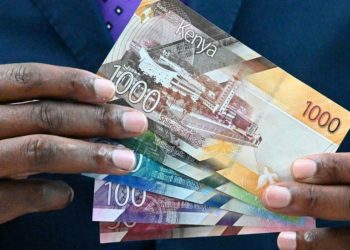Excise duty is a tax charged on specific goods and services. With Kenya’s growing digital economy, internet access has become more of a necessity rather than luxury. From virtual classrooms in schools and universities to mobile banking for individuals and small businesses, internet connectivity drives productivity and innovation. Despite this, the cost of staying connected has become a burden for a lot of people in the country, due to the recent increase in excise duty on internet services to KES 9.0 bn. The government signifies this move as part of its strategy to raise more revenue to fund its operations. As much as this may sound viable in theory, the harsh reality lies on the implications that will affect households, small businesses and the youth.
Excise duty on internet services has been on an upward trajectory over the recent years, for instance, where it increased by 5.0% to 20.0% in 2021 from 15.0% as stipulated in the Finance Act of 2021. The latest adjustment, which now pushes the total collections from this tax to KES 9.0 bn, effectively means higher costs for mobile data, broadband subscriptions, and even bundled services like voice-data plans. Mobile internet is ranked as the most accessible form of connectivity in the country, with over 26 million active data subscribers using it for everything ranging from school work to their business operations. It is clear that the rise in internet prices will have a negative widespread impact on a lot of people.
First, this hike in internet prices will affect the students and the education sector in general. With the rapid rise of e-learning tools such as MwalimuPlus and Google Classroom, accessible internet has become an important asset in the modern-day education curriculum. However, rural students already face challenges including lack of devices, poor network coverage, and inadequate electricity. Adding cost pressure through taxation may widen the educational gap. Second, Kenya’s SME sector, which is responsible for contributing about 34.0% of Kenya’s Gross Domestic Product and 91.0% of the total new jobs generated annually, employs approximately 15 million people directly. From online entrepreneurs to transport applications such as Uber and Bolt, the increased internet costs directly affect business performance. Higher operational costs may force businesses to either pass on the expense to customers or scale down digital services, both of which hinder competitiveness in an already challenging economy.
While taxation is an integral tool in raising revenue to fund public services, it must be accommodating and equitable to all parties. Stakeholders in the digital sector have proposed alternatives such as progressive taxation where basic data packages could be zero-rated or taxed less than premium bundles. Second, tax holidays for schools and small businesses which will help in promoting innovation and inclusion. Installing public Wi-Fi in underserved areas especially in schools and libraries.
As Kenya seeks to expand its tax base and bridge fiscal gaps, it must be careful not to tax away opportunities. Access to affordable, reliable internet is more than a conveniencee since it’s a catalyst for economic growth, job creation, and social equity.
















